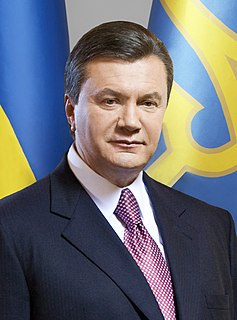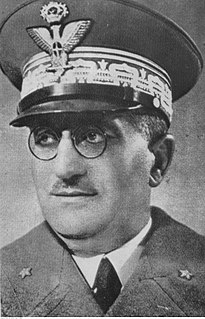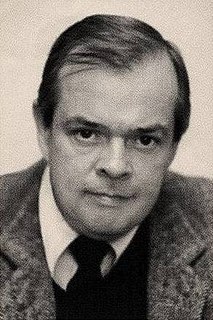A Quote by Bob Schaffer
Though there is growing division among the Ukrainian military ranks as to loyalty in this revolution, the possibility of violence looms over the entire situation.
Related Quotes
Across town, over in the East Village, the graffiti was calling for the rich to be eaten, imprisoned, or taxed out of existence. Though it sometimes seemed like a nice idea, I hoped the revolution would not take place during my lifetime. I didn't want the rich to go away until I could at least briefly join their ranks.
Even revolution, which transforms a concrete situation of oppression by establishing the process of liberation, must confront this phenomenon. Many of the oppressed who directly or indirectly participate in revolution intend - conditioned by the myths of the old order - to make it their private revolution. The shadow of their former oppressor is still cast over them.
In recent years the military has gradually been eased out of political life in Turkey. The military budget is now subject to much more parliamentary scrutiny than before. The National Security Council, through which the military used to exercise influence over the government is now a purely consultative body. But Turkish society still sees the military as the guarantor of law and order. The army is trusted, held in high regard - though not by dissident liberals. When things go wrong, people expect the military to intervene, as they've intervened over and over again in Turkish history.
I always lived in a multilingual society (Polish-Ukrainian, German-Ukrainian, English-Ukrainian), and was open to outside linguistic influences. I think it was within three years of coming to the US that I started writing in English, although purely for myself, not trying to get it published. Living in America, I was constantly in touch with English, and Ukrainian was for me a private language.
The Duce told me that he foresaw the possibility of a conflict between Germany and Russia. He said that we could not stay out of this because it involved the struggle against communism. It was, therefore, necessary to make arrangements for the bringing together between Ljubljana and Zagreb of a motorized division, of an armored division, and of the grenadier division.
I was always creatively stubborn, adverse to editing by others, and wanted to use the kind of Ukrainian we spoke among ourselves rather than the more artificial prescribed literary Ukrainian. The problem was the greatest in prose, where editors would change my language because "it sounded better this way." My poetry they left alone probably out of deference to that hallowed genre.
I think that most people don't think in terms of an American revolution, they think in terms of a Russian revolution, or even a Ukrainian revolution. But the idea of an American revolution does not occur to most people. And when I came down to the movement milieu seventy-five years ago, the black movement was just starting, and the war in Europe had brought into being the "Double V for Victory" [campaign]: the idea was that we ought to win democracy abroad with democracy at home. And that was the beginning of an American revolution, and most people don't recognize that.
I remain convinced that for Stalin to have complete centralized power in his hands, he found it necessary to physically destroy the second-largest Soviet republic, meaning the annihilation of the Ukrainian peasantry, Ukrainian intelligentsia, Ukrainian language, and history as understood by the people; to do away with Ukraine and things Ukrainian as such. The calculation was very simple, very primitive: no people, therefore, no separate country, and thus no problem. Such a policy is Genocide in the classic sense of the word.
Imperialism is capitalism at that stage of development at which the dominance of monopolies and finance capitalism is established; in which the export of capital has acquired pronounced importance; in which the division of the world among the international trusts has begun, in which the division of all territories of the globe among the biggest capitalist powers has been completed.
































